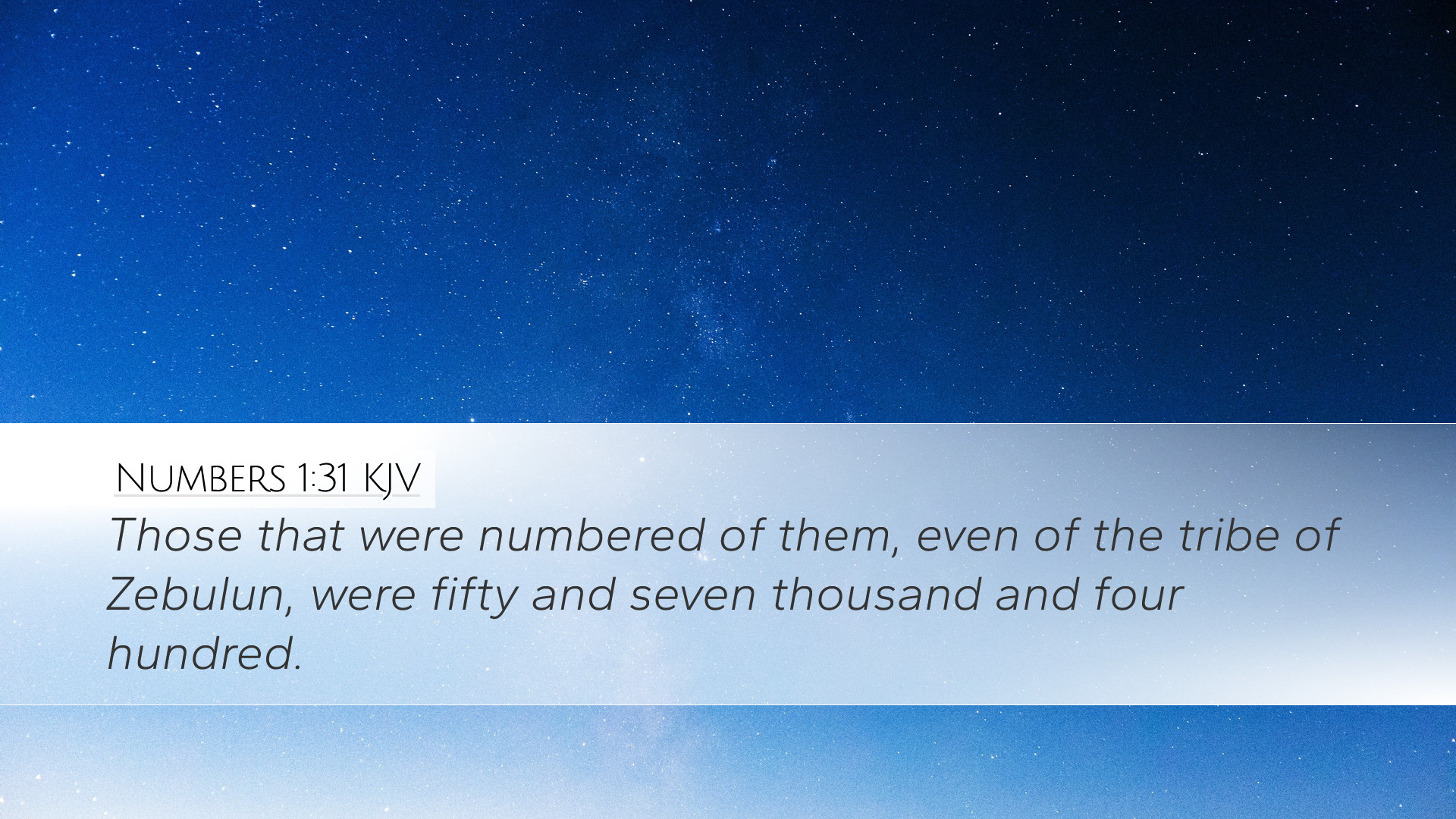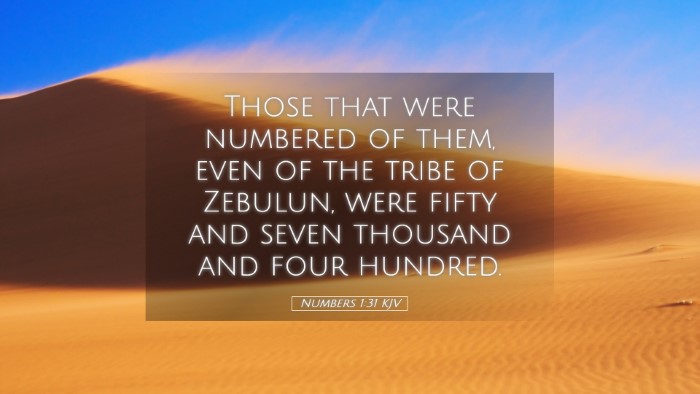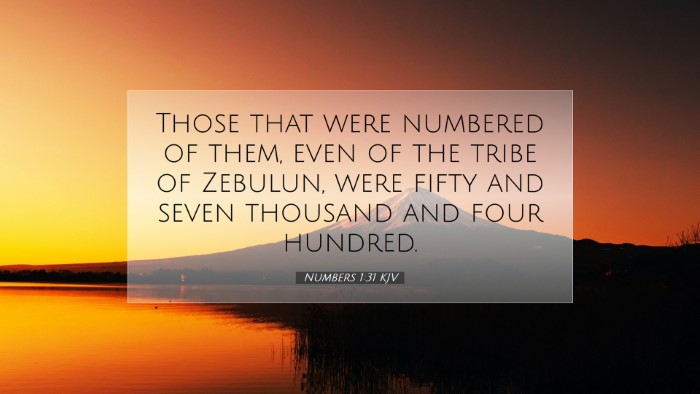Commentary on Numbers 1:31
Verse Context: Numbers 1:31 states, “And those that were numbered of them, even of the tribe of Gad, were forty thousand and five hundred.” This verse belongs to a larger narrative where God commands Moses to take a census of the Israelites, specifically focusing on the preparations for entering the Promised Land.
Introduction to the Commentary
This commentary synthesizes insights from various public domain sources, creating a comprehensive understanding of Numbers 1:31. The analysis reflects on the significance of the tribe's enumeration, the implications for leadership, and the overall theological perspectives woven throughout the text. It emphasizes the themes of order, identity, and divine purpose found in the census narrative.
Exegesis of Numbers 1:31
Matthew Henry's Commentary: Matthew Henry highlights that each tribe's precise numbering illustrates God's meticulous attention to detail in His governance of Israel. The tribe of Gad, identified here, is significant not merely for its numbers but for its divine calling and military role in the context of Israel's journey and battles. Henry emphasizes that these figures served not only to organize the people but also to prepare them for their respective roles in the conquest of Canaan.
Albert Barnes’ Notes: Barnes further elaborates on the implications of the size of Gad’s tribe. He notes the strategic importance of this tribe in warfare and its geographical significance. This suggests that God’s providence ensures that each tribe is adequately represented for the challenges ahead. Barnes delves into the socio-economic structure of the tribes, pointing out that their organization reflects a divinely ordained order necessary for survival and success.
Adam Clarke’s Commentary: Clarke provides an important perspective on the historical context of the tribe of Gad. He draws attention to its role as a fighting force, especially given its placement on the eastern side of the Jordan River. Clarke describes how the numbers reveal God’s faithfulness and readiness to fulfill promises, noting Gad's population is indicative of God's blessings and the fulfillment of His covenant with Israel.
Theological Implications
Each commentary contributes to understanding the broader theological implications of the census. The enumeration showcases:
- Divine Order: The act of counting the tribes underscores God's desire for order within His people, urging modern readers to consider the importance of structure in the church and spiritual community.
- Identity and Heritage: The specific mention of each tribe reinforces the notion of identity among God's people. It symbolizes their unique contributions and roles within the larger framework of God's plan.
- Covenant Faithfulness: The number itself speaks volumes about God's faithfulness. As the Israelites prepare to enter the Promised Land, they can look at their large numbers as a testament to God's promises to their ancestors.
Application for Modern Readers
The insights from these commentaries prompt reflection for pastors, students, theologians, and scholars:
- In what ways does God call us to recognize our identities within His broader family?
- How can churches implement structured approaches to fulfill their missions, reminiscent of the organization exhibited in the tribe's census?
- What does it mean to trust in God's providence as we face our own "promised lands"? How does the assurance of divine purpose inform our personal and collective journeys?
Conclusion
Numbers 1:31 encapsulates profound truths about God's relationship with His people through the lens of organization, identity, and purpose. The commentaries collectively urge modern believers to appreciate the depth of God's dealings with His people and the implications of being counted among His own. The verse stands as a powerful reminder of God’s faithfulness, calling each of us to reflect on our roles within His plan.


